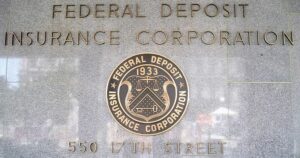Banks that charge multiple nonsufficient funds fees on a single item could be violating consumer laws if the bank has not clearly informed customers of this practice, according to the FDIC.
If a bank charges a fee on an account without sufficient funds to cover a check or ACH transaction and then assesses another fee when a merchant resubmits the payment, this practice could violate the Federal Trade Commission Act if the practice was not made clear to consumers, the FDIC said in supervisory guidance issued yesterday.
FDIC consumer compliance examinations have found that some disclosures did not fully describe this practice, putting the bank at risk of violating Section 5 of the Federal Trade Commission Act, which prohibits unfair or deceptive acts or practices.
“While specific facts and circumstances ultimately determine whether a practice violates a law or regulation, the failure to disclose material information to customers about re-presentment and fee practices has the potential to mislead reasonable customers, and there are situations that may also present risk of unfairness if the customer is unable to avoid fees related to re-presented transactions,” the FDIC said.
The bank regulator said in a footnote that the practice could also violate the section of the Dodd Frank Act that prohibits “abusive acts or practices in connection with a consumer financial product or service.”
The FDIC has seen some banks take steps to mitigate the risks with nonsufficient funds fees, including disclosing the frequency and maximum number of fees that will be assessed. Other banks have updated their practices around alerting customers of transactions subject to fees and the timing of fees.
Banks have also chosen to assess only one fee on an item or eliminate this fee altogether.
The past two years have seen multiple banks eliminate nonsufficient funds fees, including PNC Bank, which announced last week it had eliminated the fee.
The FDIC said its examiners would focus on identifying issues related to the items that have been re-presented and ensuring that banks correct deficiencies and remediate harms done to customers. Banks that have not taken steps to fix issues could face consequences.
“If examiners identify violations of law due to re-presentment NSF fee practices that have not been self-identified and fully corrected prior to a consumer compliance examination, the FDIC will evaluate appropriate supervisory or enforcement actions, including civil money penalties and restitution, where appropriate,” the FDIC said.









